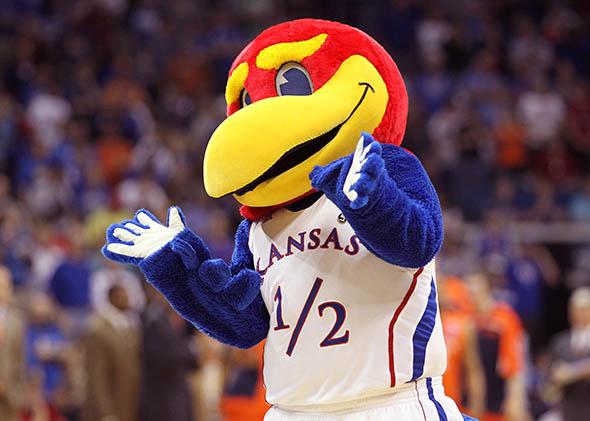Last week, the Kansas Board of Regents, a nine-member governing body that controls six state universities and some 30 community and technical colleges, voted unanimously to approve a new policy that gives each institution’s “chief executive officer” discretion to discipline or terminate any faculty or staff member who uses social media “improperly.” Many in the higher education world denounce this move as a sweeping attack on academic freedom, one prompted by a tenured journalism professor writing a single (admittedly awful) tweet about the National Rifle Association.
This new policy will effectively scare every employee of a Kansas university off the Internet. But should we be surprised, given the increasing resemblance of every public university in the United States to a Fortune 500 corporation, that professors and university staff are now being held to the same standards as private employees? I mean, look at Justine Sacco, the world’s least-knowledgeable AIDS commentator, or whatshisname from Duck Dynasty. If these two jackasses should lose their jobs for saying something so inflammatory, why shouldn’t university professors? Well, in Kansas, it’s not just about being inflammatory—now, university employees can get fired for saying just about anything.
The event that likely precipitated the policy change was one incendiary tweet in the wake of yet another mass shooting. David W. Guth, a tenured journalism professor at University of Kansas, unleashed a 140-character rant that insisted the “blood [was] on the hands of the #NRA.” Opinionated, but not necessarily objectionable, but then he went on: “Next time, let it be YOUR sons and daughters.” Oof. After a highly predictable and not wholly undeserved reaction, Guth was temporarily suspended.
The new Kansas policy, though, makes good and sure that any similar blunder would result in its author being permanently fired—in this case for “inciting violence” (though most believe Guth was not being literal). And that’s by far the least objectionable of the policy’s clauses. The regents seem to have milked the Guth incident for maximum possible censorship, and now the verboten also extends to statements that are “contrary to the best interests of the university” or anything that “impairs discipline by superiors or harmony among coworkers.”
It is these two phrases’ ominously wide reach—and overt insistence on lockstep fealty—that are legitimately terrifying. For what is in the best interests of your university? Perhaps your university is firing a large chunk of its faculty but keeping its rock-climbing wall intact, and anyone who dares disagree in public will fear for her job. Indeed, at Minnesota State University Moorhead, when the notice went out that many faculty might be getting the ax, so did this threatening email from the Faculty Association (curtails of academic freedom being, of course, hardly limited to Kansas).
Yes, being contrary to “best interests of the university” could be anything—including, as scholars Amanda Murdie and Philip Nel have pointed out, just doing research on a subject the regents might find “deviant.” Meanwhile, any faculty who dares speak out on behalf of underpaid adjuncts and contingent faculty, or attempts to harness the power of social media to organize, certainly “impairs harmony among coworkers,” so you won’t see any labor activism in Kansas universities anytime soon. Hope you like your $22,000 a year, KU adjuncts, because now everyone has to keep their traps shut, or else.
But why, exactly, is this wrong? IAC was right to flip out on Justine Sacco. A&E was right to kick Phil Robertson off the air. Why isn’t it within KU’s purview to fire people who use company equipment, or are on company time, or are in some other way using their company affiliation, to say something that isn’t in the best interests of the company?
Because a university, especially a public university, is not a company. A public university does not have stockholders; it is not even allowed to make a profit. The “interests of the university,” to use the Kansas regents’ verbiage, are the creation, preservation, and dissemination of knowledge—the free exchange of ideas. Furthermore, although the attorney general’s office signed off on the policy, the Kansas university system is in a very different place with regard to the First Amendment than, say, A&E is—again, because KU is a state-funded research university and not a private corporation. Or rather, it’s supposed to be: At this point, it’s a thin conceit that’s growing thinner by the day. To that end, the Kansas regulations are actually kind of impressive, as they let go of the slightest pretense that KU is not a corporation.
Of course, the regents may think they’re stemming a rising tide of inflammatory violence-tweets, but in reality theirs is an outsized, reactionary maneuver that harnesses hysteria to further a repressive agenda. Sure, when a professor makes the news these days, it’s usually because she did something outrageous: a marital aid demonstration, a “sex slavery” skit, an NRA tweet—or, my personal favorite, making white people uncomfortable. But these few newsmakers are outliers.
The true defining characteristic of the average contemporary academic is total, abject terror of saying anything that might jeopardize her career. Lest a single unfavorable moment be seen by a colleague or administrator, junior faculty on the tenure track often have a second “real” Facebook account under a different name and tweet or blog anonymously. Even tenured academics have much to fear: One wrong move could lose them a grant, promotion to full professor, or any modest raise ever again. The Chronicle of Higher Education, long considered academia’s publication of record, is said to employ more pseudonyms than any newspaper in America. That’s why the KU policy is not just unnecessarily broad, it’s also just unnecessary, period: Most academics already have to spend their lives cowering in fear. I guess the Kansas regents just aren’t satisfied with “most.”
